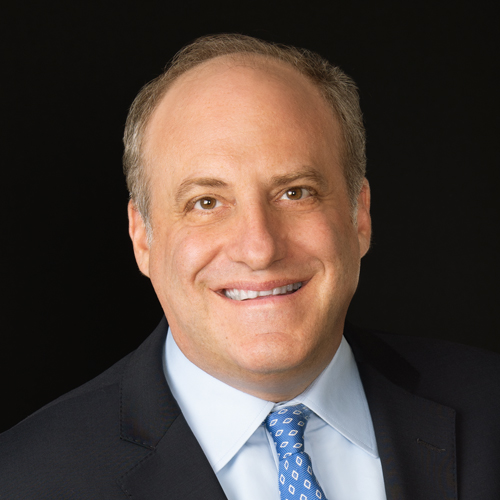On June 9, 2025, the Department of Justice (DOJ) issued new guidelines for investigations and enforcement of the Foreign Corrupt Practices Act (FCPA), following a four-month pause of new FCPA investigations per President Donald Trump’s February 10 executive order. The new guidelines provide a nonexhaustive list of factors for prosecutors to consider when deciding whether to pursue an FCPA investigation. Those factors include whether the alleged misconduct is associated with cartels or transnational criminal organizations (TCOs), whether it resulted in economic injury to American companies or individuals, whether it harmed American national security interests and the seriousness of the misconduct.
The day after DOJ released the new guidelines, Matthew Galeotti, head of DOJ’s Criminal Division, spoke at the American Conference Institute’s Conference on Global Anti-Corruption, Ethics & Compliance. He explained that the “through-line” of the guidelines is the “vindication of US interests,” emphasized that DOJ will focus on conduct “that genuinely impacts the United States or the American people,” and observed that if conduct “does not implicate US interests,” it “should be left to our foreign counterparts or appropriate regulators.”
Galeotti went beyond the FCPA to discuss corporate criminal enforcement more broadly, stating that, under his leadership, the Criminal Division will “vigorously pursue” meritorious investigations and “move them expeditiously.” Galeotti also cautioned white-collar defense counsel not to “seek[] premature relief” by appealing the decisions of trial attorneys and assistant United States attorneys (AUSAs) to DOJ leadership, noting that such actions “will be counter-productive.” In addition, Galeotti reiterated the benefits of voluntary self-disclosure, noting that the updated Corporate Enforcement Policy (CEP) provides a guarantee of a declination – not just a “presumption” – for companies that voluntarily self-report, cooperate and remediate.
DOJ’s pause and review of FCPA enforcement
On February 5, 2025, Attorney General Pamela Bondi issued a memorandum that, among other things, directed the Criminal Division to focus on FCPA prosecutions related to cartels or TCOs and to “shift focus away from investigations and cases that do not involve such a connection.” Five days later, the president signed Executive Order 14209, which stated that the FCPA had been “stretched beyond proper bounds and abused in a manner that harms the interests of the United States.” The order also stated that FCPA enforcement “against American citizens and businesses … for routine business practices in other nations … harms American economic competitiveness and, therefore, national security.” DOJ was directed “to cease initiation of new FCPA investigations,” review existing investigations and issue updated guidelines or policies regarding FCPA enforcement.
New FCPA guidelines
Four months after the February 10 executive order, DOJ released its new guidelines for FCPA investigations. The guidelines direct prosecutors to consider the following factors, none of which, according to Galeotti, is “necessary or dispositive.” Under the guidelines, new FCPA investigations must be approved by senior DOJ officials and should “proceed as expeditiously as possible.”
1. Cartels or TCOs
Consistent with the February 5 Bondi memo, under the guidelines, one “primary consideration” in deciding whether to pursue an FCPA investigation is whether the alleged misconduct is associated with cartels or TCOs, relates to money laundering for cartels or TCOs, or is linked to “foreign officials” or “state-owned entities” that have received bribes from cartels or TCOs.
2. Opportunities for US companies
The guidelines note that “corrupt competitors skew markets and disadvantage law-abiding US companies” when they bribe foreign officials to “obtain lucrative contracts and illicit profits.” Therefore, another important consideration for new FCPA enforcement is whether the alleged misconduct “deprived specific and identifiable US entities of fair access to compete and/or resulted in economic injury to specific and identifiable American companies and individuals.” The guidelines state that DOJ prosecutors will not focus on individuals or entities based on their nationality, but also observe that “[t]he most blatant bribery schemes have historically been committed by foreign companies.”
3. National security
New FCPA enforcement will seek to advance US national security by focusing on corruption involving “key infrastructure or assets,” including in sectors such as defense, intelligence and critical infrastructure.
4. Serious misconduct
The guidelines direct prosecutors not to focus on “alleged misconduct involving routine business practices,” but rather on conduct that “bears strong indicia of corrupt intent tied to particular individuals, such as substantial bribe payments, proven and sophisticated efforts to conceal bribe payments, fraudulent conduct in furtherance of the bribery scheme, and efforts to obstruct justice.”
Galeotti emphasizes self-disclosure, speed of prosecution and cautions against appeals to DOJ leadership
In addition to addressing the new FCPA guidelines, Galeotti discussed corporate criminal enforcement more broadly. In doing so, he made clear that “[f]ighting white-collar and corporate crime is a critical component of the Criminal Division’s priorities,” and warned that DOJ “will move aggressively – yet fairly – to prosecute white-collar offenders whose crimes undermine US interests.” He then offered insight into several areas.
First, Galeotti reiterated that the updated CEP guarantees a declination for companies that voluntarily self-report, cooperate and remediate. While recognizing that DOJ has “maintained our discretion to deviate where there are aggravating circumstances,” he insisted that “this is not a game of ‘gotcha,’” and stated that he would “closely scrutinize any [voluntary self-disclosure] that is not recommended for a CEP declination.” And in case there was any question regarding DOJ’s focus on self-reporting, Galeotti concluded his remarks by saying: “What do I want you to take away from today? This is the time for companies to self-report. It is the time to do the work, come in early, cooperate, and remediate.”
Second, Galeotti discussed the need for speed and efficiency, explaining that “we must move quickly to get criminals off the streets and bring clarity to those under investigation,” and “use our resources efficiently in service of all [DOJ’s] priorities.” To this end, he also urged efficiency from the defense side, noting that the swift production of documents and witnesses, among other things, “are just part of what we expect cooperating companies to do.” He likewise made clear that the government’s focus on efficiency cannot be used as a shield, stating, “when the delay is due to the conduct of a subject or target, arguments regarding a supposed lack of efficiency will not resonate.”
Finally, Galeotti urged white-collar defense counsel to be “conscientious about what, when, and how you appeal the decisions of Trial Attorneys and AUSAs.” He cautioned against “seeking premature relief, mischaracterizing prosecutorial conduct, or otherwise failing to be an honest broker,” noting that such actions not only “undermine[] our system,” but “will be counter-productive to your appeals.”
Key takeaways
- The FCPA is back in business, so to speak, but DOJ’s focus going forward will be on “limiting undue burdens on American companies that operate abroad” and “targeting enforcement actions against conduct that directly undermines US national interests.”
- Recent updates to the CEP further incentivize self-reporting corporate misconduct. Companies and individuals also should be mindful of the timeliness of self-reporting. As Galeotti noted, “when one company reports misconduct, it typically leads to the discovery of similar misconduct at other companies, so you benefit from being first in the door.”
- DOJ’s “renewed efforts to combat white-collar crime” also will focus on quick action and efficiency, and the government expects similar responsiveness from subjects and targets.
- Additional guidance is likely to be issued soon. Galeotti referenced forthcoming announcements “in key priority areas, including corporate resolutions across the white-collar landscape.”





